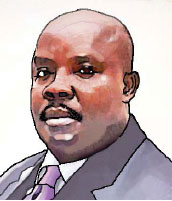By Emeka Alex Duru
(08054103327)
While conceding defeat to the Federal Forces in January 1970, General Philip Effiong, the second in command of the defunct Biafra, said, “It is my sincere hope that the lessons of the bitter struggle have been learned by everybody”.
That was quite instructive, coming from a man who knew what brought the country at that sorry pass. But sadly, not much has been learnt from the strife, 50 years after. Rather, events and circumstances leading to the 1967 – 1970 Civil War resonate in the country in various shapes and forms.
These include arrogance of power among the leadership class, intolerance among the rank and file, exclusion of certain persons and groups, insecurity of life and property, among other issues. There is thus, the fear in some quarters on the country returning to the battle grounds, if adequate care is not taken. Some readily kick against this.
Of course, given our propensity to religion without commensurate manifestation of goodness, there has been the tendency to wish away the thought of any section of the country returning to the war path. Some have also reasoned that no nation fights a civil war twice and survives. There is sense in this, in a way.
Any conflagration in any part of the country today, will certainly end with more disastrous consequences in terms of human and material resources than what was experienced between 1967 and 1970, given the advancement in knowledge and technology. Besides, if 50 years after the cessation of field hostilities between Nigeria and Biafra, the scars of the war persist in various ways, any infraction that may see brothers pulling the guns against one another again in the country, must be avoided because the cost will be enormous, this time around.
This, ordinarily, should not be a problem. The country is endowed with men and women who knew a lot on what happened before and during the war. Their experiences on the disturbances should have come handy in rebuilding the nation. At the national level, for instance, such hands abound.
With possible exception of President Goodluck Jonathan, every other President or Military Head of State that had ruled Nigeria, since the time of General Yakubu Gowon through to Murtala Muhammed, Olusegun Obasanjo, Shehu Shagari, Muhammadu Buhari, Ibrahim Babangida, Sani Abacha, Abdulsalami Abubakar, played one role or another during the civil war. Participation in the crisis and corresponding experiences, should have provided them with enough compass to steer the ship of state aright. This, we are however, yet to see.
Every country has a watershed in its history. This may be its date of political independence or a momentous occasion in its life. For Nigeria, the civil war can be said to be the watershed in its march to nationhood. The United States of America, had similar experience in its civil war of 1861 – 1865.
The war, fought between the northern States (loyal to the Union) and the southern States (that had seceded from the Union and formed the Confederacy), aimed at addressing the questions of slavery, economy and rights of states. At the end of the exercise, the combatants and their commanders had learnt their lessons and had in a spirit of ‘never again’, forged ahead for a greater American nation.
America got it right in formulating and implementing the principles of reconciliation, reconstruction and rehabilitation. In our case, we merely imported the principles without the practice. This accounts for why in some parts of the country, particularly in the larger East that constituted the defunct Biafra, relics and memories of the war still linger.
They manifest in poor infrastructure, failed or abandoned federal projects and exclusion of indigenes of the area in strategic government institutions. It is for instance, a sad commentary on Nigeria’s reconciliation agenda that since the end of the civil war, it took the appointment of General Azubuike Ihejirika by the Jonathan administration, for an Igbo to attain the rank of Chief of Army Staff.
In the Navy, it was the brief interlude of Allison Madueke, under the Abacha government for an indigene from the zone to head that arm of the military. Even those marginal gains recorded in those isolated instances, have been rubbished by the current President Buhari administration. As it is, no officer of Igbo extraction, is heading any of the military or related platforms in the country.
These include the Army, Navy, Air Force, Police, Directorate of State Security (DSS), National Intelligence Agency (NIA). The para-military outfits as the Customs, Immigration, Civil Defence, Prisons, are not spared in the conspiracy of exclusion. Thus, when issues of security are discussed in the country, nobody presents the perspectives of the people from the area.
It can therefore be understood why citizens from that part of the country feel not wanted in the Nigeria Project. This, in a way, accounts for the youths from the East opting to pull out of the federation and try their luck in an independent entity where they will not be subjected to second class treatment.
When therefore, cries for the resurgence of Biafra resonate among the activists of the Indigenous Peoples of Biafra (IPOB) and related outfits, they are not in attempts to dismember the Nigerian nation but genuine demands by the traumatized indigenes for an arrangement that will guarantee their tomorrow.
In other zones, there are equally tales of lapses. These manifestations of leadership failure, account for burgeoning unemployment rate among the youth. Without adequate plans and programmes for the youth, they increasingly become willing tools for mischievous elements in the country.
In such instances, it becomes easy to recruit them to such odious tasks as ballot snatching and falsification of figures during elections. Some take to robbery, assassination, kidnapping and other sordid engagements. In the end, everybody loses.
The way out, is therefore to return to the basics. 50 years after the civil war, is a long period for any serious nation to get its bearing. Where, as in Nigeria, that has however, not been done, there is nothing wrong to start afresh. The challenge is on the leaders to get their priorities right and set the pace, while the followers key in.













